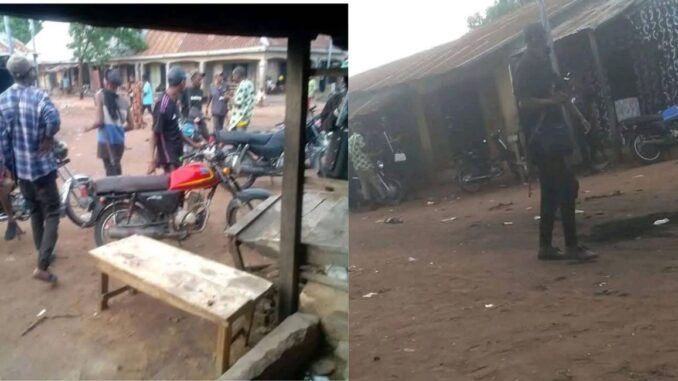News
Amazon Lists Dele Farotimi’s Book as Number One Bestseller Worldwide

Amazon has listed Dele Farotimi’s book, “Nigeria and Its Criminal Justice System,” as the number one bestseller in global politics. This surge in popularity came after Farotimi was arrested on the orders of Afe Babalola, a controversial lawyer and businessman.
The book, which initially saw low sales, gained significant attention following Farotimi’s arrest. It quickly climbed to the top of Amazon’s charts and sparked a rush to bookstores across Nigeria. Farotimi’s work criticizes corruption within the Nigerian judiciary, specifically naming Babalola as a major offender.
Farotimi, a retired lawyer, accused Babalola of compromising the Supreme Court and corrupting judges with bribes. The book, published in July 2024, supports longstanding suspicions about the influence of Babalola on the judiciary.
Farotimi was arrested in Lagos by armed policemen and taken to Ado Ekiti, where Babalola is based. After his arraignment, Farotimi was taken into custody while his bail application was adjourned until December 10. The police said the book was capable of causing public fear and breaching the peace.
Babalola was accused of influencing court judgments, a claim he had denied. The arrest has sparked public outrage with many Nigerians calling for the release of Farotimi and asking the police to investigate Babalola’s influence.
The new popularity of the book underscores public interest in the allegations against Babalola and deeper issues of corruption in the Nigerian judiciary.
News
Reps Tackle CBN, OAGF Over Missing Grants, Bailout Funds

According to him, such financial mishandling not only disrupts critical public services and projects but also results in major losses to the nation’s purse—resources that could have been channelled into crucial services and developmental efforts, as laid out in Section 14(2)(b) of the Constitution.
Speaker Abbas, thereafter setup a Special Committee to be chaired by Rep. Chinedu Martins to immediately launch a probe into the “Utilisation of take-off grants, bailout funds, and interventions allocated to MDAs, government institutions, and GOEs from 2015 to present.”
News
Abuja light rail project must be commissioned on May 29-Wike vows

The FCT Minister, Mr. Nyesom Wike, expressed satisfaction with the progress on the Abuja light rail project, reaffirming its May 29 delivery as sacrosanct.
He made these assurances after inspecting the ongoing construction of access roads to the train stations on Wednesday, from Metro Train Station in the Central Area to Nnamdi Azikiwe International Airport, Abuja.
Reassuring journalists accompanying him, the minister reiterated that President Bola Tinubu would commission the rail project on May 29 to mark his second year in office.
The visited stations were Wupa station near Idu and Bassanjiwa station near the airport.
“This is part of our routine inspection of ongoing projects to see the contractors’ progress,” Wike explained.
“We are working day and night to fulfill our promise to President Tinubu and FCT residents. By May, Mr. President will ride on the Metro line.”
News
Just in: Alleged Herdsmen Armed With AK-47 Rifles Take Over Communities In Benue State

Gunmen suspected to be Fulani herdsmen are currently invading some communities in the Ukum Local Government Area of Benue State.
According to sources, the herdsmen armed with AK-47 rifles stormed the community around 04:15pm on Thursday.
“Our lives are in danger this evening, armed Fulani herdsmen, about 600 in numbers have taken over our communities this evening,” a resident told SaharaReporters.
“They’re currently moving around towns in Ukum Local Government Area of Benue state. No security personnel at all, Governor Alia didn’t send security, they said operation will start soon once they (herders) have observed the place.”
The insecurity situation in Benue has been alarming in recent weeks with attacks from gunmen suspected to be herdsmen.
The media had reported that suspected herdsmen again unleashed terror in Benue State, attacking three communities in Otukpo Local Government Area (LGA) on Wednesday, just a day after 11 people were killed in a deadly raid on Otobi community.
The latest victims of the escalating violence were Emichi, Odudaje, and Okpamaju, communities that had previously suffered an attack in February, which left five people dead.
However, the renewed attack has created fear and mass displacement among residents, with women and children fleeing to safety.
Local sources say the death toll from the fresh attack remains unclear, but several casualties are feared.
-

 News11 hours ago
News11 hours agoBREAKING: Unknown gunmen reportedly storm Senator Natasha’s family residence
-

 News14 hours ago
News14 hours agoSnub story on removal of Rivers Sole Administrator, it’s FAKE-Chief Registrar
-

 News20 hours ago
News20 hours agoFG expresses sympathy for CBEX victims, urges a united effort to combat Ponzi schemes
-

 News19 hours ago
News19 hours ago“How my father escaped assassination” – Bishop Oyedepo’s daughter
-

 News13 hours ago
News13 hours agoSAD! Again, Alleged Herdsmen Attack Three Benue Communities
-

 Politics13 hours ago
Politics13 hours agoPDP govs are jokers, can’t stop coalition train, Atiku boasts
-

 News5 hours ago
News5 hours agoAbuja light rail project must be commissioned on May 29-Wike vows
-

 News10 hours ago
News10 hours agoLawmaker Slams NBA Over Rivers Crisis, Demands Return of N300m

















